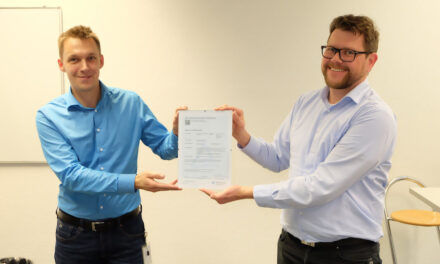Jon Howard, Managing Director of Heason Technology considers motion control and hygienic design for food and beverage packaging automation

With significant developments in high-hygiene servo motor and drive technology from our distribution partner Kollmorgen, machine designers are now able to specify solutions that do not automatically mean using expensive and performance-limited stainless steel motors throughout an automated machine. This is made possible with Kollmorgen’s synchronous servo motors which include stainless steel housed motors but also covers lower cost FDA-compliant food grade coated variants.
When specifying servo motors and associated motion systems for food processing and packaging applications from a hygienic design perspective, machine designers would establish whether motion needs to be applied directly in areas with actual contact with the intended produce for the machine, or where motors and perhaps decentralised drives might be sited further away – and of course what sort of machine cleaning regime would be required. This then leads to consideration of the levels of motor and drive protection required and thus the construction and materials of the components used.
Where servo motors are located in very close proximity to processed products, it is difficult to consider an alternative to stainless steel housed models. As such, these motors are more expensive and, size-for-size with standard servo motors, have reduced power and efficiency due to reduced thermal conductivity; consequently they should only be deployed where absolutely necessary. The Kollmorgen AKMH stainless steel servo motor however, does offer some interesting advantages. It is not merely a standard motor with a stainless steel housing and hardware. The motor meets IP69K and safe high-pressure cleaning with water pressures of up to 100 bar by virtue a cylindrical housing and smooth design that ensures that fluids can run off better.
EPDM sealing rings are chosen for the material’s excellent resilience and their slight surface bulge actually helps repel build-up of deposits. The motor’s convex end cover is not fixed with hygiene-compromising screws, but rather is screwed into the main housing with a large internal thread that compresses the seal. This 316 stainless steel servo motor is complemented with a thermal performance that, whilst is not up to a traditional steel housed motor, does boast a torque derating of under 20% which compared to other manufacturers models at around 30%, offers better performance. The range provides continuous torque from 0.4 to 21 Nm and speeds up to 8000 rpm.
For areas where produce does not come into direct contact with servo motors, Kollmorgen’s AKM series with washdown and washdown food-grade coatings provide a very compelling cost-effective and long-life solution.In particular the food-grade version provides a protective dual-component coating and lubricants that comply with FDA requirements. This coating has been certified by the EcoLab laboratory, which specialises in hygiene tests.
Drives may be centralised in a common control cabinet but more and more packaging machine designers are embracing the advantages of decentralised solutions where the drive is mounted on the machine and is often sited close to the motor. This reduces cabling cost and time, and simplifies machine complexity to a large extent.
Kollmorgen has further simplified such system architectures with an innovation that connects servo motors to their drives with just one cable for power and control signals. As encoder signals from the synchronous motor are transmitted via the motor cable, this reduces the cable count on the machine by a half. With installation times and the space requirement for cabling reduced, there is an additional advantage by the reduction in the number of connection points that also benefits reliability. The simplified design also permits more effective cleaning with less components and potentially more space around them.


